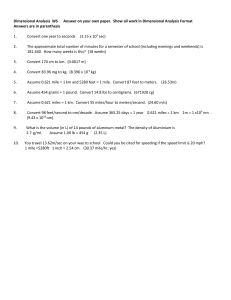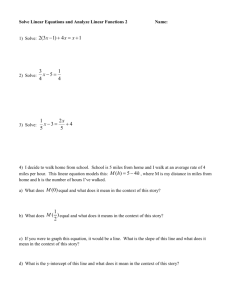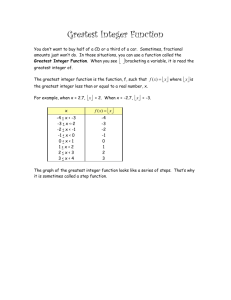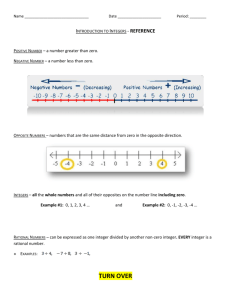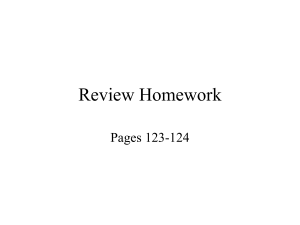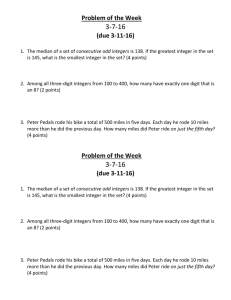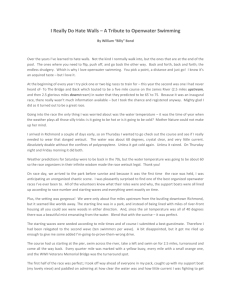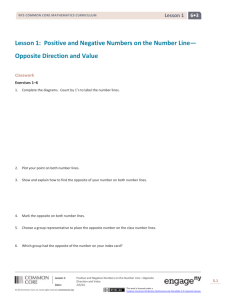Greatest Integer Function Worksheet with Answers
advertisement
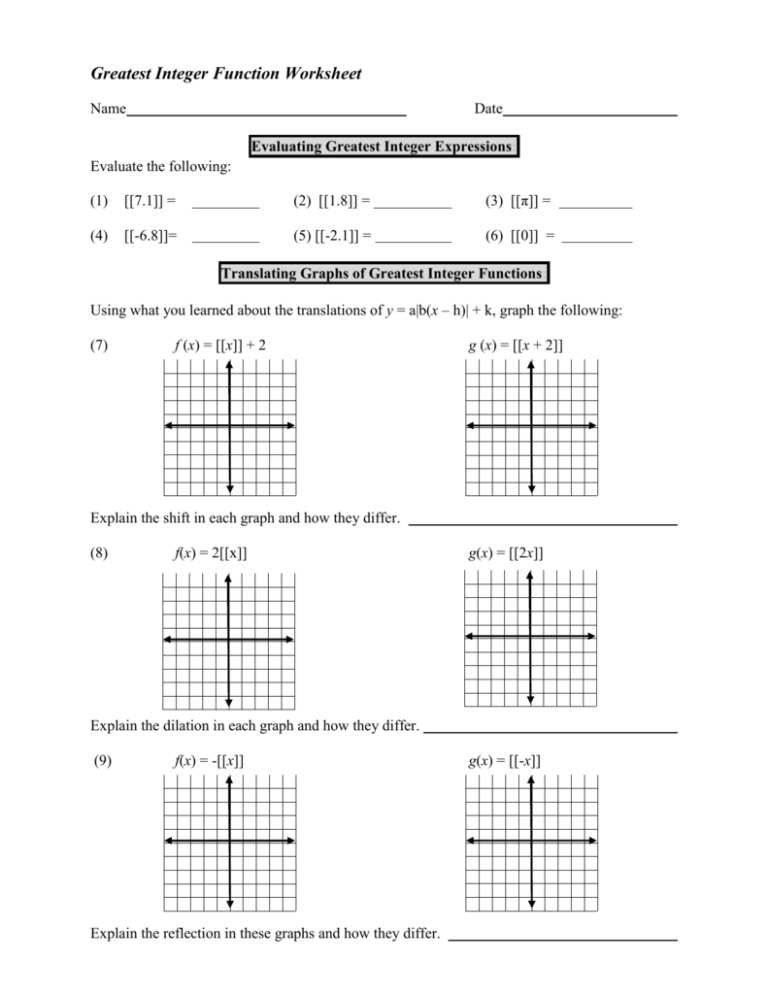
Greatest Integer Function Worksheet Name Date Evaluating Greatest Integer Expressions: Evaluate the following: (1) [[7.1]] = (2) [[1.8]] = (3) [[π]] = (4) [[-6.8]]= (5) [[-2.1]] = (6) [[0]] = Translating Graphs of Greatest Integer Functions: Using what you learned about the translations of y = a|b(x – h)| + k, graph the following: (7) f (x) = [[x]] + 2 g (x) = [[x + 2]] Explain the shift in each graph and how they differ. (8) f(x) = 2[[x]] g(x) = [[2x]] Explain the dilation in each graph and how they differ. (9) f(x) = -[[x]] Explain the reflection in these graphs and how they differ. g(x) = [[-x]] Real World Application of Step Functions: Prior to September, 2000, taxi fares from Washington DC to Maryland were described as follows: $2.00 up to and including ½ mile, $0.70 for each additional ½ mile increment. (10) Describe the independent and dependent variables and explain your choices. (11) Graph the fares for the first 2 miles: (Make sure to label the axes.) (12) Write the piecewise function for 0 to 2 miles. f x (13) Discuss why this is a step function and it is different from the greatest integer parent function f x x . Greatest Integer Function Worksheet with Answers Name Date Evaluating Greatest Integer Expressions: Evaluate the following: (1) 7.1 = 7 (2) 1.8 (4) 6.8 = 7 (5) 2.1 = = 1 (3) = 3 3 (6) 0 = 0 Translating Graphs of Greatest Integer Functions: Using what you learned about the translations of y = a|x – h| + k, graph the following by hand and check on your calculator: (7) f x x + 2 g x x 2 . Explain the shift in each graph and how they differ. In f(x) the y values were shifted up 2 but in g(x) the x values were shifted to the left 2; however, the results were the same. (8) f x 2 x g x 2x Explain the dilation in each graph and how they differ. The y values of f(x) were multiplied by 2 while the x values in g(x) were divided by 2. g x x f x x (9) Explain the reflection in these graphs and how they differ. In f(x) the y values were rotated around the xaxis and in the g(x) the x values were rotated around the yaxis; however the results were the same. Real World Application of Step Functions: Prior to September, 2000, taxi fares from Washington DC to Maryland were described as follows: $2.00 up to and including ½ mile, $0.70 for each additional ½ mile increment. (10) Describe the independent and dependent variables and explain your choices. The number of miles is the independent variable and the fare is the dependent variable because the fare depends on how far you travel. (11) Graph the fares for the first 2 miles: (Make sure to label the axes.) $.50 units ½ mile units (12) Write the piecewise function for 0 to 2 miles. 0 x .5 mile $2.00 if $2.70 if .5 x 1 mile f x $3.40 if 1 x 1.5 miles $4.10 if 1.5 x 2 miles (13) Discuss why this is a step function and it is different from the greatest integer parent function. This is a step function because it is made with horizontal line segments. It is different than the greatest integer function because it does not start at 0, jump discontinuities occur at every increment of ½ instead of 1, and the increments of y are .7 instead of 1. It also rounds up instead of rounding down meaning the closed dot is on the right side of the horizontal step instead of on the left.
